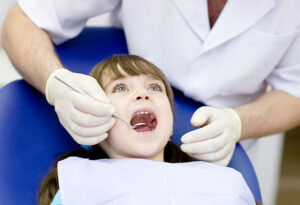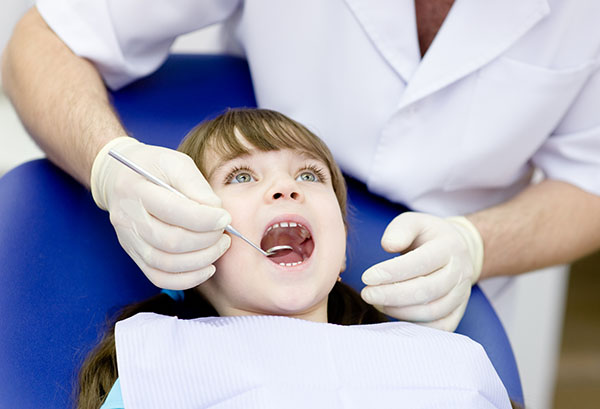Pediatric dentists focus on oral health for children. They can help your child develop healthy habits that will last a lifetime. They can also treat dental problems, including tooth decay and gum disease.
Parents should take their children to a pediatric dentist when they get their first milk teeth or by age 1. This will ensure proper screening and care for the teeth and gums. Click https://bocadentallasvegas.com/ to learn more.

Preventive care in pediatric dental care helps kids to establish healthy oral and dental hygiene practices from a young age. Those habits can last them throughout their lives. This type of care involves routine X-rays, regular visits to a dentist for examinations and teeth cleanings, and education on maintaining good oral hygiene.
A healthy mouth is essential to a child’s overall health, and poor oral health can affect a child’s ability to take in nutrients or speak properly. Kids who don’t receive proper preventive dentistry can face serious dental problems later in life. This can include gum disease, tooth decay, and other major dental issues.
There are many ways to provide preventive dental care for kids, but the most important is regular visits to a dentist or pediatrician. Kids should see a dentist as soon as their first baby teeth appear and continue to visit at least once every six months.
During these visits, children will have their teeth and jaws professionally cleaned, and any dental issues identified will be addressed promptly. This allows kids to avoid painful and expensive treatments in the future.
These visits also provide parents with tips on how to help their kids practice good oral hygiene at home. This includes proper brushing and flossing techniques. Sometimes, dentists may recommend additional preventive treatments, such as dental sealants or fluoride applications, to strengthen and protect their children’s teeth.
Another treatment a pediatric dentist can provide is a space maintainer, which keeps the space open after a child loses a baby tooth. This appliance holds and reserves the space until permanent teeth emerge properly.
Pediatric dentists can also help kids stop bad oral habits, such as thumb sucking or pacifier use. They can also advise kids on how to eat a balanced diet that promotes oral health. In some cases, dentists may suggest an appliance to correct a tongue thrusting habit, which can cause an open bite and other orthodontic problems. The adage that “an ounce of prevention is worth a pound of cure” applies to kids’ dental care and adults’.
While preventive care is the main focus of pediatric dental care, there are times when children require restorative treatments. This includes addressing dental issues like cavities, tooth decay, and dental injuries. These treatments can also help in preventing future complications from developing.
Typical restorative treatments include fillings, crowns, and extractions. In addition, pediatric dentists may recommend orthodontic treatment for children to help them develop straighter teeth. Typically, this is done before the child’s permanent teeth come in to reduce the risk of crooked or misaligned teeth in the adult mouth.
Children are more likely to need restorative dental care because of poor oral hygiene habits and unhealthy diets. The good news is that these issues can be prevented with regular visits to the dentist and by following recommended oral health practices.
A pediatric dentist will examine the child’s teeth and gums during these appointments. The dentist will look for signs of trouble, including inflammation and bleeding. If necessary, X-rays will be performed to assess the extent of the damage.
A pediatric dentist will then work with the parents to develop a treatment plan. They will discuss sedation options for the child to make them feel more comfortable during treatment. In addition, the pediatric dentist will offer advice on improving the child’s brushing and flossing routines at home.
The final step is to schedule a follow-up appointment. This will allow the family to monitor the treatment progress and ensure that the teeth are healing properly.
Pediatric dentistry is a vital aspect of any child’s life. It teaches them how to care for their teeth and establishes good dental hygiene habits that will last a lifetime. Parents should ensure they choose a dentist with proper training and experience in treating children. They should also ask about the dentist’s payment policies to ensure their child can receive dental care without financial stress. Parents can avoid costly dental problems later in life by taking these precautions.
Pediatric dental emergencies can occur as a result of sudden injuries or due to tooth decay. These situations are scary for parents, and it is important to know when to seek help from an emergency dentist. Symptoms of dental emergencies include pain and swelling, bleeding from the mouth, or knocked-out teeth. Children are more likely to experience trauma to their mouths as they are active and are developing motor coordination.
Pediatric emergency dental care helps alleviate children’s pain and protects their teeth and jaws. It can also prevent complications, such as infections or permanent tooth loss. Some pediatric emergencies require a visit to a general dentist, but others may need to be seen by an emergency dental specialist.
A pediatric emergency dentist can treat various dental emergencies, such as a displaced tooth or abscess. They can also treat injuries and trauma to the mouth, including lacerations or deep cuts. They are also trained to perform procedures, such as repositioning or reinserting a lost tooth.
In addition to treating children, pediatric dental professionals are responsible for ensuring that patients receive the necessary health care in times of emergency. This means they must triage patients based on their needs and prioritize those with the most urgent needs. They must also be aware of the risks of infection and take precautions to minimize them.
Pediatric dentists have extra training to manage children’s oral health, unlike regular dentists. Known as pedodontists, they spend several years studying to become qualified. They can do all the same procedures as common dentists but are more skilled in managing young patients. Pediatric dental plans usually cover two yearly preventive cleanings, fluoride treatments, and basic services such as fillings. They do not typically cover braces and other orthodontics, root canals, or periodontics.
While dental coverage is one of the ten essential health benefits under the Affordable Care Act (ACA), it does not have to be embedded in an exchange plan’s actuarial value. Instead, stand-alone pediatric dental plans are allowed in the exchanges as long as they meet certain requirements. These requirements include a maximum out-of-pocket cost and a minimum of 85% actuarial value.
Pediatric dental care is a critical component of children’s health. It has been shown to significantly influence children’s eating habits, growth and development, and overall well-being. Poor oral health children are likelier to suffer from low self-esteem, obesity, and chronic diseases such as heart disease, diabetes, and stroke. In addition, they are more prone to behavioral problems like poor performance in school and difficulty learning.
In a recent study, 78% of 169 medical primary care providers indicated they would likely refer at-risk infants and toddlers for dental services. However, only half call the dentist to make an appointment for the child, and most simply give the caregiver the name of a dental office without additional assistance. A comprehensive referral approach can be achieved through training, motivation, and community organization efforts. This includes training physicians to screen for dental problems, encouraging them to use community resources for referrals, and providing support for screening, referral, and follow-up.
A pediatric dentist has specialized education in treating children’s teeth, gums, and jaws. They can perform a full oral examination, including an evaluation of the alignment of the teeth and the spacing for permanent teeth. They can also provide X-rays to detect tooth decay and other dental problems. They are also trained to handle children who are anxious about the dental experience and can use behavior guidance techniques to help them relax.
Most dental procedures for young children are routine cleanings, fillings, and extractions. Regular cleanings are important because they remove plaque that could lead to gum disease and tooth decay. Dental hygienists have special tools and techniques to remove tartar from children’s teeth. They can also educate parents on brushing and flossing techniques and demonstrate proper oral hygiene routines.
Dental emergencies can happen to anyone, but they are more common in children. They may have a knocked-out tooth or a broken or chipped tooth. Whether the problem is caused by sports, play, or an accident, it is essential to know how to respond. In the case of a dental emergency, it is best to find a pediatric dentist near you that accepts dental insurance. They can treat your child in the most professional and friendly manner.

